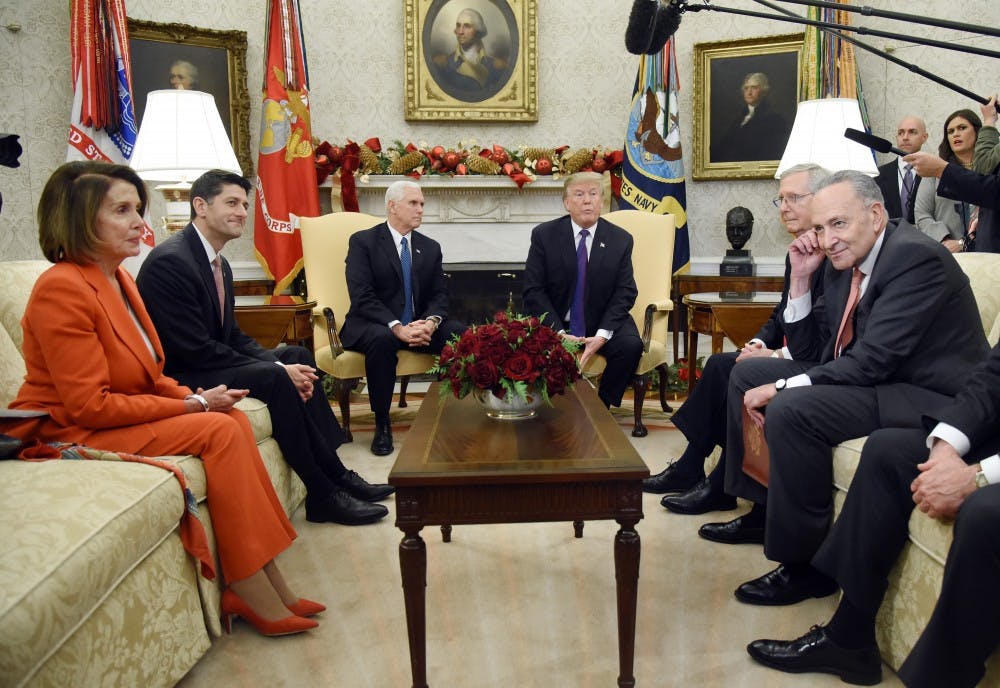In the Obama years, Republicans were dead set on blocking every piece of Democratic legislation. While they controlled only a minority in Congress, they made generous use of the filibuster. Most infamously, Ted Cruz attempted to block the Affordable Care Act with a 21-hour speech that included a reading of "Green Eggs and Ham."
This led to frustration among many in the Left. People felt the Senate was broken and Republicans were subverting the democratic process, but now the tables have turned. In the Senate, Republicans maintain only a slim majority. With budget reconciliation no longer an option, the filibuster has become a real threat for them.
Donald Trump has, more than once, called for the Senate Majority Leader Mitch McConnell to invoke the nuclear option to overcome this. It’s an appropriately named move — it’s as short-sighted as invoking the nuclear option with North Korea. As it stands, it takes 60 votes to end a filibuster. “Going nuclear” would reduce that to 51 votes.
In an 81-18 vote, the government reopened this Monday with CHIP, Children's Insurance Program, receiving funding for the next six years. Without the filibuster forcing a 60-vote threshold, Mitch McConnell could’ve easily strong-armed his way past the Democrats and pass the old version of the budget, which had no future promise for debate on immigration.
At the basic level, filibusters are meant to extend debate on a vote in order to delay a bill from passing. At their most idealistic, they should end in changing senators' minds and swinging the vote. In practice, they force compromise and protect the minority group from being totally trampled. Our government is set up to be majority rule with minority rights.
Let's take a look at what happened last time the Republicans invoked the nuclear option. Back in April, Mitch McConnell moved to change cloture from 60 to 51 votes on Supreme Court justices. Republicans were able to confirm Neil Gorsuch to a lifelong position on the Supreme Court. The will of 49 senators was disregarded by the will of 51.
Democrats once took the nuclear option with executive appointments back in 2013 and we’re now feeling the fallout. Last year Donald Trump was able to nominate Betsy DeVos, Ben Carson, Rex Tillerson and numerous others to cabinet level positions. None of them were able to be filibustered and all were sworn in largely along party lines.
All that stands left is the legislative filibuster. Without it, President Trump, with a slim Republican majority, could easily undo as many Obama-era laws as he saw fit. The next president could do exactly the same. And every four years with every change in power all past legislation could be erased and replaced in a retributive cycle.
The nuclear option is a short term solution with long term ramifications. As much as it may aggravate some, our government is made to move slowly. We make no progress as a nation when we take turns taking revenge against each other. The filibuster as it’s used today is a symptom of our increasingly dysfunctional congress, but it’s a measure that keeps it from devolving further.

